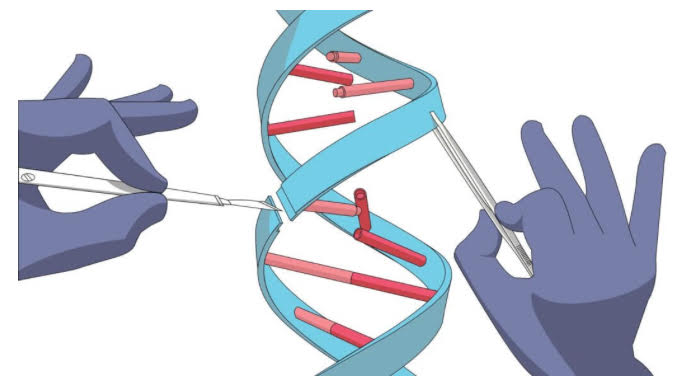ALTERATIONS: Chinese scientist reveals that the first gene-edited babies have been born in an effort to help battle HIV.
By Roman McCree, Staff Writer
He Jiankui, a biologist and researcher at the Southern University of Science and Technology in Shenzhen, China, claims his lab facilitated the first birth of gene-edited children. The twin girls born from the experiment reportedly have been altered to possess genetic alterations that could protect them from HIV. Although the babies have been reported as healthy and at home now, it caused an uproar among the scientific and medical communities. Feng Zhang, a biological engineer at the Broad Institute and a professor of neuroscience at MIT, spoke out against the use of the Clustered Regularly Interspaced Short Palindromic Repeats (CRISPR) gene-editing technique, as he is one of the original developers of the technique. A simple version of the CRISPR system was modified to edit genomes, which is completed by delivering the system into a cell where the cell’s genome can be cut at the desired location, allowing genes to be removed or added. Zhang, along with medical and scientific professionals around the world, has major ethical concerns about using the technique on human embryos at this point with the current level of understanding of gene sequencing. Although this breakthrough could be used to help create stronger future generations, should parents be allowed to choose and create their ideal child?
These modifications, although with good intent, can create unwanted and even harmful side effects. Zhang explains that causing a genetic alteration may have additional unintended consequences, such as within Jiankui’s experiment. “If the gene is removed, it’s significantly less likely that the person will get infected by HIV, but then it also makes it much more likely for the person to get West Nile Virus or to suffer a fatality in the case of flu infection,” Zhang stated. The first ethical dilemma raised by this experiment is in regards to the amount of information given in advance to health officials or the parents. While parents may feel that giving their kids a reduced chance to contract HIV is a great idea, they may be unaware of the other possible dangers of their decision. At that point, who is held responsible for the unwanted changes that may be present in the child? While the scientists were the ones to complete the “procedure,” the parents are required to give consent to alter these genes. Poly Biology teacher Glen Bagwell expressed his disgust at the idea of gene altering especially in the cases of mishaps: “As a parent, I would be unable to look my child in the eye and tell them that the reason they are like that is because of my selfish choices,” Bagwell explained. Although some changes may be accidental, at what point should these alterations be stopped?
While many would argue that it is unethical to alter genetics, others see it is a pathway into bettering future generations. Joseph Danna (11), a student at Woodcrest Christian High School, explained how it might be necessary to have these trials as a way to increase comprehension and to continue developing this technology. “The more ability we have to manipulate things that we were previously unable to control, the better we get as a race,” Danna stated. While these modifications are still a bit unpredictable, as time goes on, the capabilities of the procedure will only continue to expand. While the risk of complications is still very present and the consequences of the genetic revision unknown, without continuing the experiment there will be no breakthrough in safer methods. At this point in time, while the issues are still unknown to us, this method of genetic altering should not be continued to be practiced on human babies. Although they have already practiced on smaller organisms, they should continue to do so until they know of all possible outcomes from the experiments.

